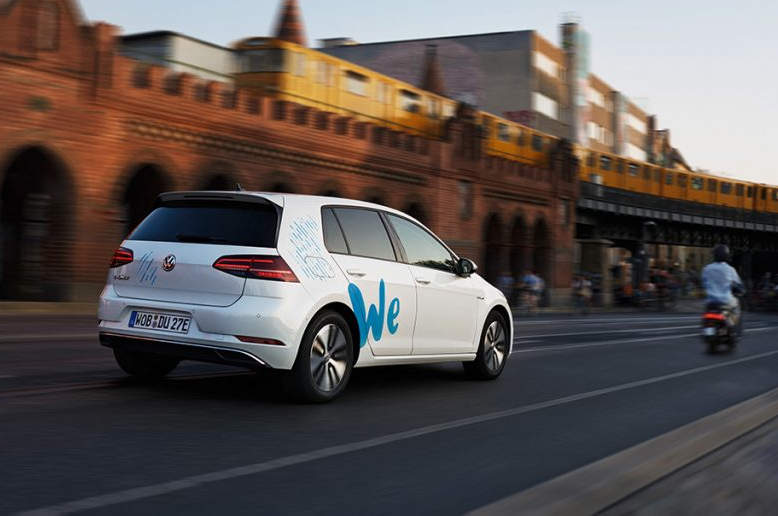
Volkswagen’s car-sharing brand, We Share, will launch in Berlin in the second quarter of next year, and plans to expand abroad from 2020.
The car-sharing platform will spearhead the “We” family of products, through which VW intends to target “non-owners”.
We Share will introduce a fleet of 2,000 all-electric vehicles on Berlin’s roads, and plans to subsequently expand to North America and “core European markets”. VW said it is targeting cities with a population of one million and above.
The company intends to gradually replace the electric vehicles with connected and autonomous cars in its upcoming “ID” range.
Volkswagen has been a latecomer of sorts to the alternative mobility space. In order to get the car-sharing service up and running as quickly as possible, it delegated its management to subsidiary Urban Mobility International (UMI).
Philipp Reth, chief executive of UMI, said: “The prospects for vehicle on demand services are very good. The most conservative forecasts for Europe predict annual growth of 15 percent. We will continue to develop this market and make this form of mobility accessible to an even broader user group.”
How well do you really know your competitors?
Access the most comprehensive Company Profiles on the market, powered by GlobalData. Save hours of research. Gain competitive edge.

Thank you!
Your download email will arrive shortly
Not ready to buy yet? Download a free sample
We are confident about the unique quality of our Company Profiles. However, we want you to make the most beneficial decision for your business, so we offer a free sample that you can download by submitting the below form
By GlobalDataVW will need to carve out a space for itself in one of the busiest markets for mobility in Europe. On top of regional champions Daimler and BMW, soon to merge their operations, VW’s service faces competition from Europcar’s Ubeeqo, and rental groups Enterprise, Sixt and Hertz. Outside of Germany, it will also show off with ride-hailing platforms such as Uber.
Berlin has been a tough cookie for some players to crack. Groupe PSA, which has also been trying to catch up with rivals in alternative mobility, withdrew its Citroen-branded car club from Berlin in November, deciding to focus on other markets such as Spain and France instead. Seattle-based Zipcar, meanwhile, had entered the German market in 2015, but does not list the country on its website anymore.
Volkswagen has already been experimenting with alternative revenue pipelines. Last month, Volkswagen Financial Services launched a car rental service from its dealerships in the UK, following on from Germany and Spain. The service in the UK started out with three Volkswagen-brand dealerships and one Skoda dealership.







